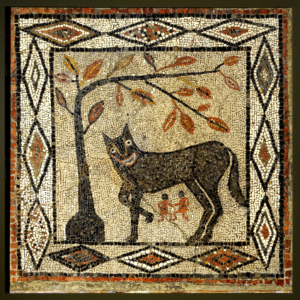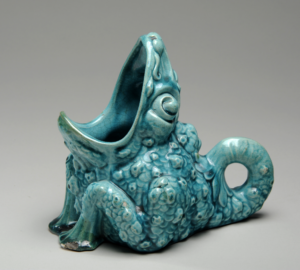In the same the storm but not the same boat; Leeds Museums and Galleries approach to a Recovery Curriculum
By Sarah Allen and Dionne Matthews Spence
We have a route out of lockdown, a hopeful light at the end of the tunnel, but the path to recovery can be approached in a variety of different ways. As schools returned in early March, we can be sure that pupils are happy to be reuniting with friends, parents were hoping those new school shoes bought last September still fit and everyone will be wishing this is the last of school closures. We know it isn’t as simple as just pressing play on a new school term, so much has happened in the last 12 months that pupils and their teachers will be processing. Around the country, schools may be revisiting their ideas of a ‘Recovery Curriculum’ and what that means to them.
How Leeds schools are approaching recovery
In Leeds, schools are encouraged to incorporate the ‘PACE’ model into their recovery curriculum. This approach, developed by clinical psychologist Dan Hughes over 20 years ago, aims to make children and young people feel safe and secure within their environments. It proposes a range of activities based around the themes of Playful, Acceptance, Curiosity and Empathy. The Leeds City Council guidance reaffirms the importance of supporting all staff and pupils in recognising we may have all been in the same storm but not the same boat. It isn’t about catching up on lost time, more recognising the differences in our shared experience in meaningful, engaging and challenging ways. Leeds schools will be doing this by allowing time for relationships and connections to form, establishing routines and inspiring a love for learning once again.
Learning and recovery at Leeds Museums and Galleries
 At LMG, engagement and learning is at the heart of what we do, offering immersive and authentic experiences for all our audiences. Our mantra in the Learning Team has long been Creativity, Curiosity and Conversation. We aim to foster cultural capital in a balanced, varied and blended schools’ offer. Before Covid-19 our museums, mills, historic houses and gallery rooms were normally full of school children and families taking part and taking ownership of our spaces. Even though our physical busyness had to change our learning mission remained the same.
At LMG, engagement and learning is at the heart of what we do, offering immersive and authentic experiences for all our audiences. Our mantra in the Learning Team has long been Creativity, Curiosity and Conversation. We aim to foster cultural capital in a balanced, varied and blended schools’ offer. Before Covid-19 our museums, mills, historic houses and gallery rooms were normally full of school children and families taking part and taking ownership of our spaces. Even though our physical busyness had to change our learning mission remained the same.
Throughout the three lockdowns our Learning Team have engaged with schools and families virtually. LMG’s approach to learning meant we could adapt and be flexible, try new things and take risks. Looking at our established programme for what we could do in the spirit of ‘recovery’ our Arts Award offer linked well to the PACE model. This had previously been developed over many years working with the city’s SILCS (Specialist Inclusive Learning Centres) and is designed to promote collaboration, creativity, self-esteem and expressive communication skills. The certified recognition of an Arts Award also provides a collective but personal achievement for pupils and a positive outcome from their efforts.
We developed 3 strands to our Recovery Curriculum; virtual Arts Award sessions for schools and home educators, PACE themed self-led teacher resources and topic based mini resources that can be used at school or home.
During our virtual sessions delivering a Recovery Curriculum Arts Award we found that pupils responded positively and confidently to the parts of the workshop that included time and space for mindfulness and wellbeing. These included breathing exercises and collectively moving our bodies into different yoga poses inspired by our museum objects and artworks. This informed us to think more about how we can link movement and reflection into our object based learning practice. Virtual sessions also included participating in a mark-making activity inspired from the objects we shared, with lots of time and scope for individual choices and decision making. We then looked at some artists from our collection and asked questions about their work. As we would do with museum based sessions we gave time and space for curious minds and included extra opportunities to share their artwork and experiences.

The Learning Team worked together to create Recovery Curriculum teachers’ resources that incorporate the PACE format. Resources are based around an object from across our collections including a plant fossil, a pottery cabbage plant pot, animal headdress and an artisan silver wreath. Each resource offers a selection of activities under the headings; Playful, Acceptance, Curiosity and Empathy. These resources sit on a dedicated Recovery Curriculum page on our LMG website and MyLearning.org. There is also a set of Mini Mindfulness with the Museum resources which were designed to be used either in school or for home learning with the family. These were inspired by the pupil’s positive response to object based mindful activities in our virtual sessions. The resources offer quick ideas to encourage time in a busy day for wellbeing and children’s mental health.
Conclusion
The Learning Team also looked inward at our own reflection and recovery, and whilst we explored the themes of connection, belonging and a hopeful new start (more than once) we felt that the underlying aims of any recovery curriculum was something we have always championed in museum learning. At LMG we understand this notion of a recovery doesn’t have a definite end point come the end of lockdown and as such we will be creating resources and offering our tailored Arts Award sessions for the academic years ahead.
Sarah Allen, Learning and Access Officer, Abbey House Museum and Kirkstall Abbey
Dionne Matthews Spence, Learning and Access Officer, Lotherton Hall
Sarah and Dee are Learning and Access Officers who have worked together for over 10 years. Although their sites are very different they both enjoy exploring them through a variety of creative responses. They also enjoy evaluating with cake, looking for blue plaques and late night museum visits.
References:
